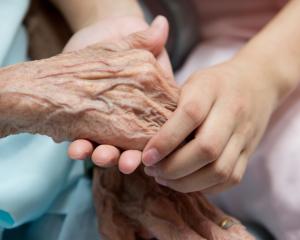
Ahmad Taha is the sole neurosurgeon in Otago-Southland. Chief medical officer Dr Nigel Millar said there were no locum neurosurgeons at Dunedin Hospital at present. In the past, locums filled staffing gaps while permanent neurosurgeons were recruited.
"It’s difficult to get people to come on a locum basis; it’s quite an undertaking for them."
Instead, neurosurgeons visit from Hamilton, Wellington and Christchurch to relieve Mr Taha under a plan devised to sustain the service while permanent neurosurgeons are recruited.
"It’s a challenging time for the service, and for Mr Taha, and we’re doing our best to support him so he gets the right amount of ... time off."
Dr Millar said he did not know if more neurosurgery patients were being transferred to Christchurch as a consequence of the staffing shortage.
Dunedin neurosurgery struggled for years with low staffing, leading to a public fundraising campaign to endow the Neurological Foundation Chair in Neurosurgery at the University of Otago.
However, last year Prof Dirk De Ridder, recruited after a successful campaign, decided to concentrate on research and dropped most of his clinical work, while a second neurosurgeon left early last year. Dr Millar acknowledged it was a disappointing situation.
"It’s obviously disappointing to lose our professor, who was appointed with the enthusiasm of the public.
"But I can’t change that, [and] we have to find a way to provide the right resource."
Recruiting neurosurgeons was "not a small undertaking" and took time.
Dr Millar did not know how much it was costing the DHB to pay for visiting neurosurgeons.
He did not know when the visiting neurosurgeon system was put in place, nor for how long Mr Taha had been on his own.
The main consideration was providing a safe service, he said.
Surgical directorate acting medical director Dr Stephen Chalcroft said in a statement there was a schedule of coverage in place for the remainder of the year.
"The need to transfer a patient to Christchurch occurs when clinical and technical issues make that unit a more suitable one for the patient’s needs, or when there is unavailability of the rostered neurosurgeon for a reason such as illness.
"Southern DHB and Canterbury DHB have worked together closely to develop the plan for the Dunedin node of the South Island neurosurgery service," Dr Chalcroft said.
The University of Otago is in charge of recruiting two extra neurosurgeons for the city, who will work jointly at the hospital and university. The university has been working on the recruitment since last year. Otago Medical School dean Prof Peter Crampton said the university was in negotiation with an associate professor to join the department.
"We hope to have some news on this in the next month or so.
"Prof De Ridder continues in the university role of Chair of Neurosurgery and is highly respected and a very successful research leader.
"He has an honorary position in Dunedin Hospital and is available to assist and provide advice as necessary.
"Once both the vacancies are filled, the total complement of neurosurgeons will be four, three of whom will have academic appointments," Prof Crampton said.
An expert panel in 2010 recommended Dunedin Hospital have three neurosurgeons, two of them with academic duties.
This was considered a sustainable way to provide the service and ensure they had enough to do.
The Dunedin service works closely with Christchurch in the reconfigured system.
Last year, Prof De Ridder told the Otago Daily Times the system had not worked as intended because Christchurch neurosurgery did not need Dunedin. The Neurological Foundation supports the Chair in Neurosurgery and was in charge of the $3million fundraising campaign in 2012. Approached for comment, the foundation said it was not in a position to because it had a new chief executive start this week.












